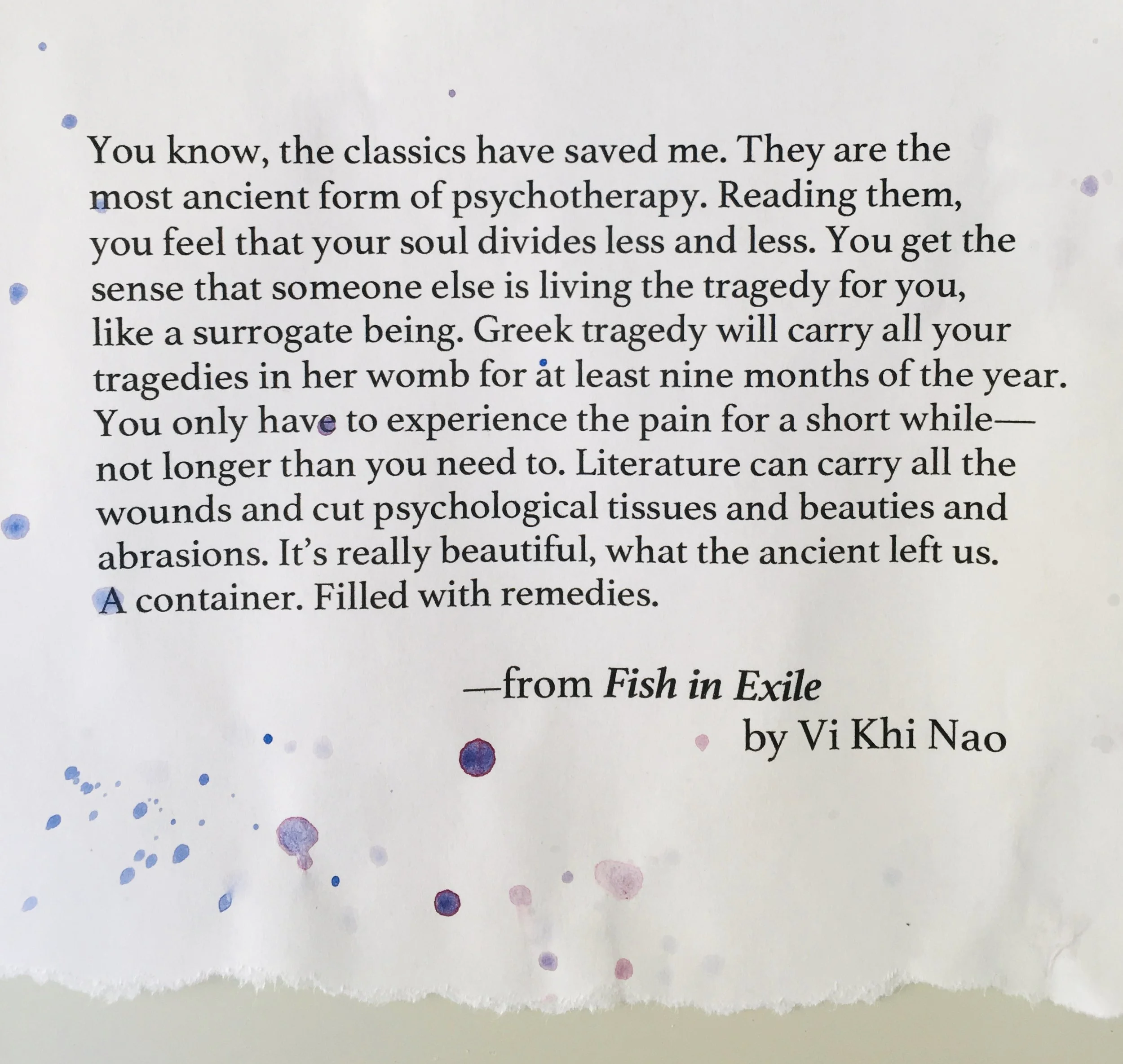I love this, which was spoken by one of the characters in Vi Khi Nao’s wonderful Fish in Exile. The idea that we can contain in stories the suffering inherent in being human. I think what Vi Khi Nao is saying here (which is not to assume that a character says the thoughts of the author, of course, but I have a hunch that here, at least, she’s in cahoots with her character) is that the act of containing makes the hardness of this place more bearable. Maybe the containment is a transformer, too, and shows that the suffering can be beautiful in some way, or underscore beauty, or it can at least become interesting or useful if we have a small distance from it. We see the tragedy in a particular story and it becomes both ours and not ours.
A writer friend on Facebook the other day posted that she’s been having difficulty just being, that the weight of all the current political and environmental disasters is keeping her in bed; she wondered how other people were managing to carry on as if these things weren’t happening. She was both being accusing and seeking advice—how were they doing it? I think she was mistaking other people’s Facebook updates for actual happiness, but maybe that’s beside the point. It’s possible to suffer (acutely, even) and still take out the trash. Whether a particular tragedy is happening to us or happening on the other side of the globe, the suffering belongs to us in some way. Because we recognize it, because on some level we know. Because we’re all human.
I was listening to Russell Brand’s podcast (an absolute favorite of mine) the other day when he was interviewing the Turkish/British writer Elif Shafak, whose latest novel Ten Minutes and 38 Seconds in This Strange World has been nominated for a Booker. I loved the interview so much, I went into the Youtube rabbit hole and watched a TED talk she gave where she talked about suffering and global political divisions, and that she sees fiction as a means to bridge the divide, that we can experience empathy or a kind of union through reading. I don’t know if she’s right—it’s not a new argument, I realize, as many others before her have offered fiction as a kind of moral or spiritual joiner—but I don’t know that she’s wrong either. I suppose it depends entirely on the reader and their particular openness. The Bosnian writer Aleksandar Hemon wrote in his essay collection, The Book of My Lives, about the discovery that his former mentor, a professor of literature, was actually a war criminal; he made clear that novels didn’t stop his mentor from becoming a monster. I take his point. I wonder, too, if we say things like “fiction creates empathy” because of an unconscious desire to bolster fiction’s reputation at a time when people seem to read less and less.
Having said all of that, I think the part of me that is cynical about fiction’s empathy-generating aspects (and also wonders why we can’t simply know that fiction is vital because it is vital, without having to defend its existence) has been affected by maybe a too-big dose of rationalism, and the part of me that likes the idea of fiction performing a kind of magic act has been energized by my growing interest in the things we can’t explain, the mystical side of our transactions with art (and people, too, for that matter). So I was reasonably swayed listening to Elif Shafak, who seems to be a wonderful voice at a compelling intersection of politics and mysticism (and I can’t wait for her book to arrive).
